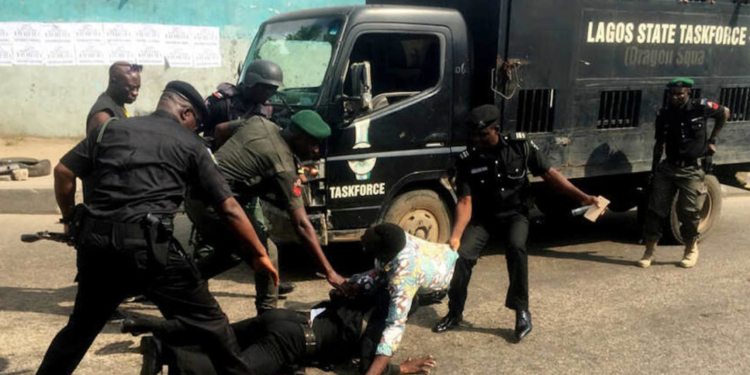Mr. Edetaen Ojo, the Executive Director of Media Rights Agenda (MRA), has disclosed that the organization has recorded at least 45 cases of attacks against journalists and media houses within one year of President Bola Ahmed Tinubu’s administration.
Mr Ojo made this known while speaking at an event organized by MRA in collaboration with the International Press Centre (IPC) and the Center for Media and Society (CEMESO) to commemorate World Press Freedom Day 2024.
Ojo said the assessment of the state of press freedom, which covers the first year in office of President Bola Tinubu is disappointing and disturbing, adding that “these attacks, coming in various forms have included arbitrary arrests and detention, kidnappings, threats, battery, and even two killings.”
The MRA ED noted that “In 37 of these attacks, the victims were male journalists, representing 82 percent while in four of the attacks, the victims were female journalists, representing 9 percent of the attacks.
“The additional four attacks we recorded were against media houses, organizations or outlets which were invaded. These institutional attacks also represent 9 percent of the total attacks.”
He said “out of the 45 cases of attacks documented by MRA, law enforcement and security agencies were responsible for 62 percent of all attacks, while hoodlums and thugs perpetrated 16 percent of the attacks with unidentified persons such as kidnappers, armed individuals, etc. being responsible for 15 percent of the attacks.”
He lamented that “there is no instance where any of the perpetrators have been arrested, prosecuted or otherwise held accountable, with the result that impunity continues to thrive.
“Although some of these attacks were not perpetrated by government officials, the responsibility of the state is to ensure that there is no impunity for attacks against journalists, but sadly this continues.”
He thereafter called for the setting up of “a specific legislation to protect journalists and the media with the requirements of relevant regional and international instruments.”
He also added that “we call on all stakeholders to share information more and support each other in times of crisis. We are working with our partners to develop tools to enable us to better track, document and respond to attacks on journalists and media freedom in general.
“We are also engaged in discussions on the establishment of a national mechanism on the safety of journalists and part of the functions of such a mechanism will be ensuring that there is accountability for any attack against journalists or the abuse of power inherent in any such attack.”
For his part, the Executive Director of the International Press Centre (IPC), Mr. Lanre Arogundade, who lamented the spate of attacks against journalists, shared that IPC is intensifying capacity building for journalists on safety reporting, particularly in relation to investigating journalism, conflict and election reporting.
Arogundade, who stressed that the government has a constitutional obligation to guarantee press freedom and ensure the safety of Journalists, noted that IPC shall not relent in making government to realize that a free press makes democracy meaningful.
In his address, Dr. Akin Akingbulu, Executive Director of the Centre for Media and Society (CEMESO) stated that, the safety of journalists is a front-burner issue in Nigeria as in other places across the world today, but Nigeria remains unsafe for Journalists to maximize their potential to the benefits of the country.
Dr. Akingbulu recommended that the government should ensure that state and non-state actors who attack journalists are brought to face the full wrath of the law
“While Media and CSOs should intensify efforts to secure compliance with judgments against those who compromised the safety of journalists, journalists should also document detailed information about colleagues who experience attacks in the line of duty.”

